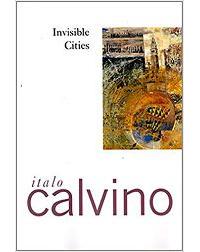
花園裡坐著年邁的忽必烈和年輕的馬可波羅。對談中,馬可波羅感覺到忽必烈對帝國即將結束的感傷,便開始講述了他在各地旅行時看到的城市來轉移忽必烈的注意力,包含城市與記憶、慾望、設計、死者、天空、貿易的奇妙故事。
建築不僅是單純的空間,還帶有從記憶、感受而賦予的意義。Italo Calvino細膩生動地藉由馬可波羅之口,將對城市的記憶、標誌、物件、環境,及在城市裡人們的生活,組合成一座座不存在,卻又充滿獨特生命力的城市。
Italo Calvino's beloved, intricately crafted novel about an Emperor's travels—a brilliant journey across far-off places and distant memory.
“Cities, like dreams, are made of desires and fears, even if the thread of their discourse is secret, their rules are absurd, their perspectives deceitful, and everything conceals something else.” In a garden sit the aged Kublai Khan and the young Marco Polo—Mongol emperor and Venetian traveler. Kublai Khan has sensed the end of his empire coming soon. Marco Polo diverts his host with stories of the cities he has seen in his travels around the empire: cities and memory, cities and desire, cities and designs, cities and the dead, cities and the sky, trading cities, hidden cities. As Marco Polo unspools his tales, the emperor detects these fantastic places are more than they appear.